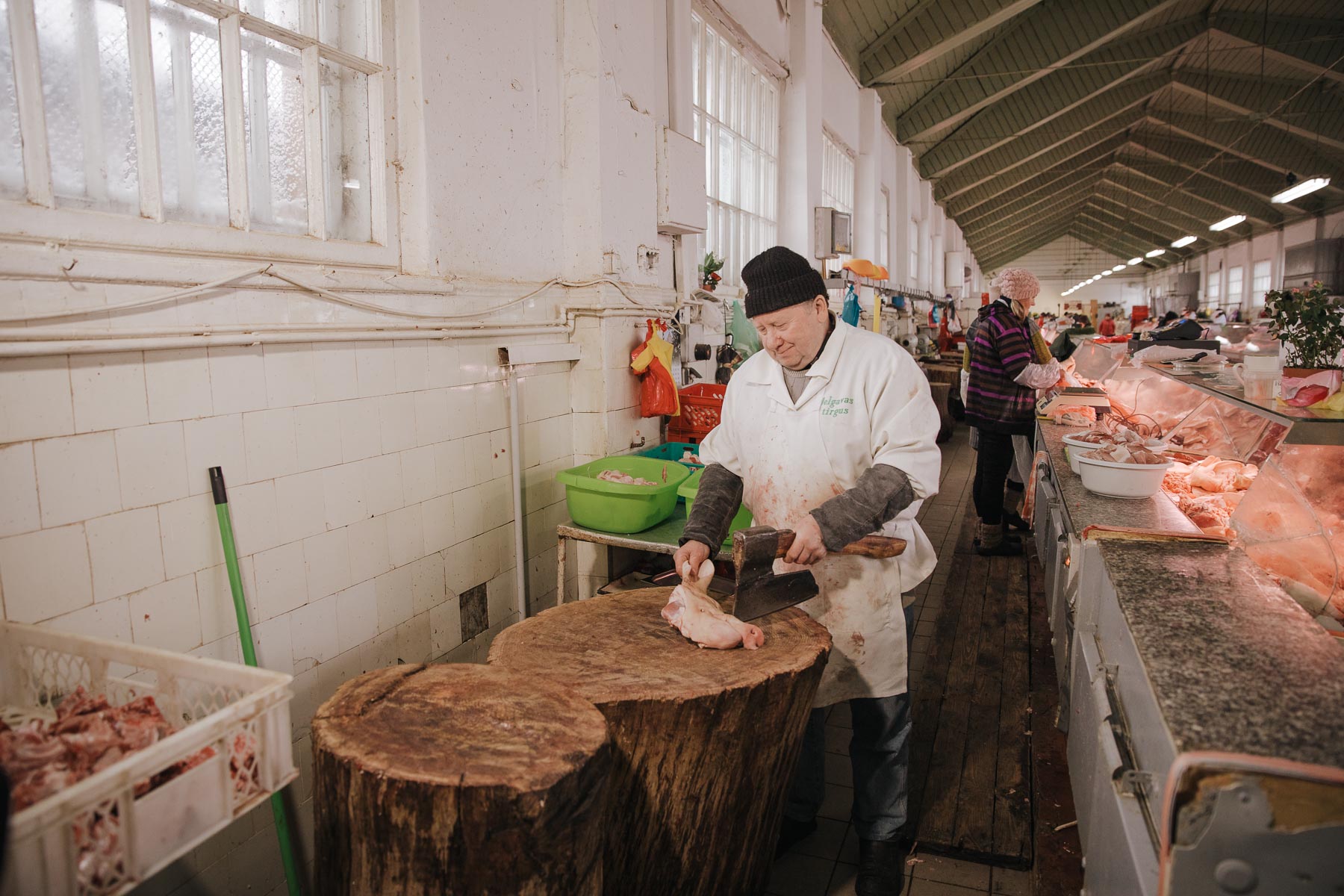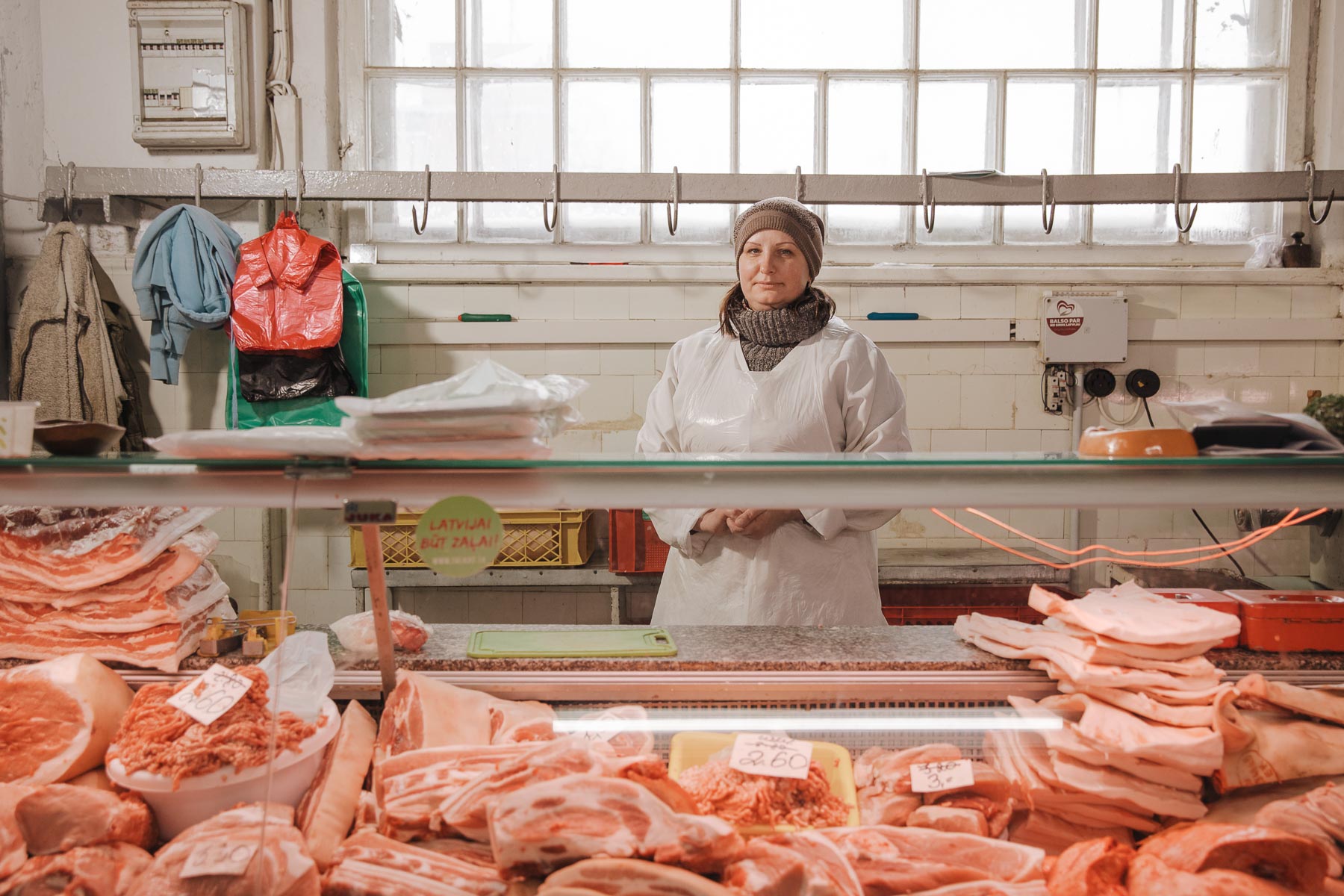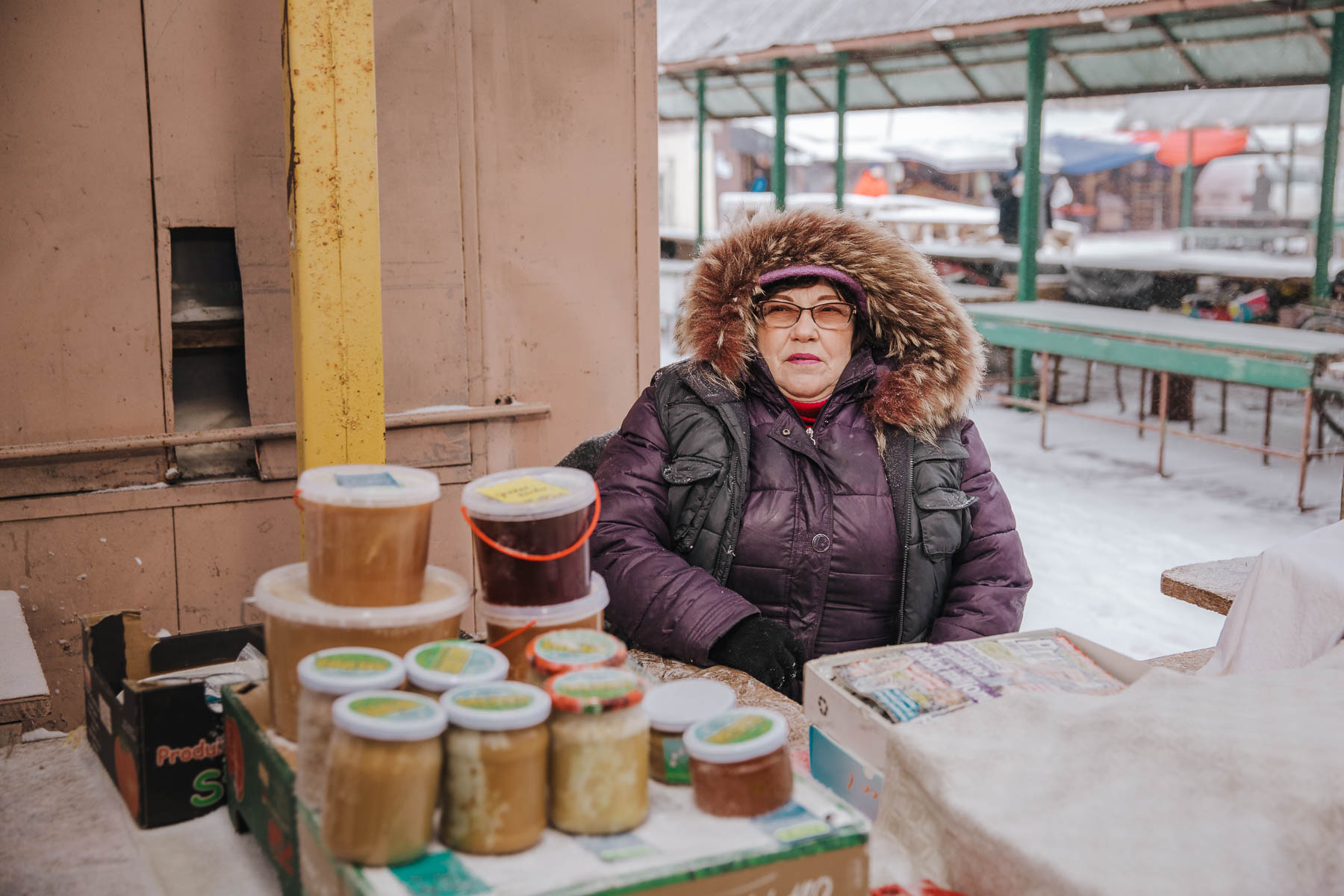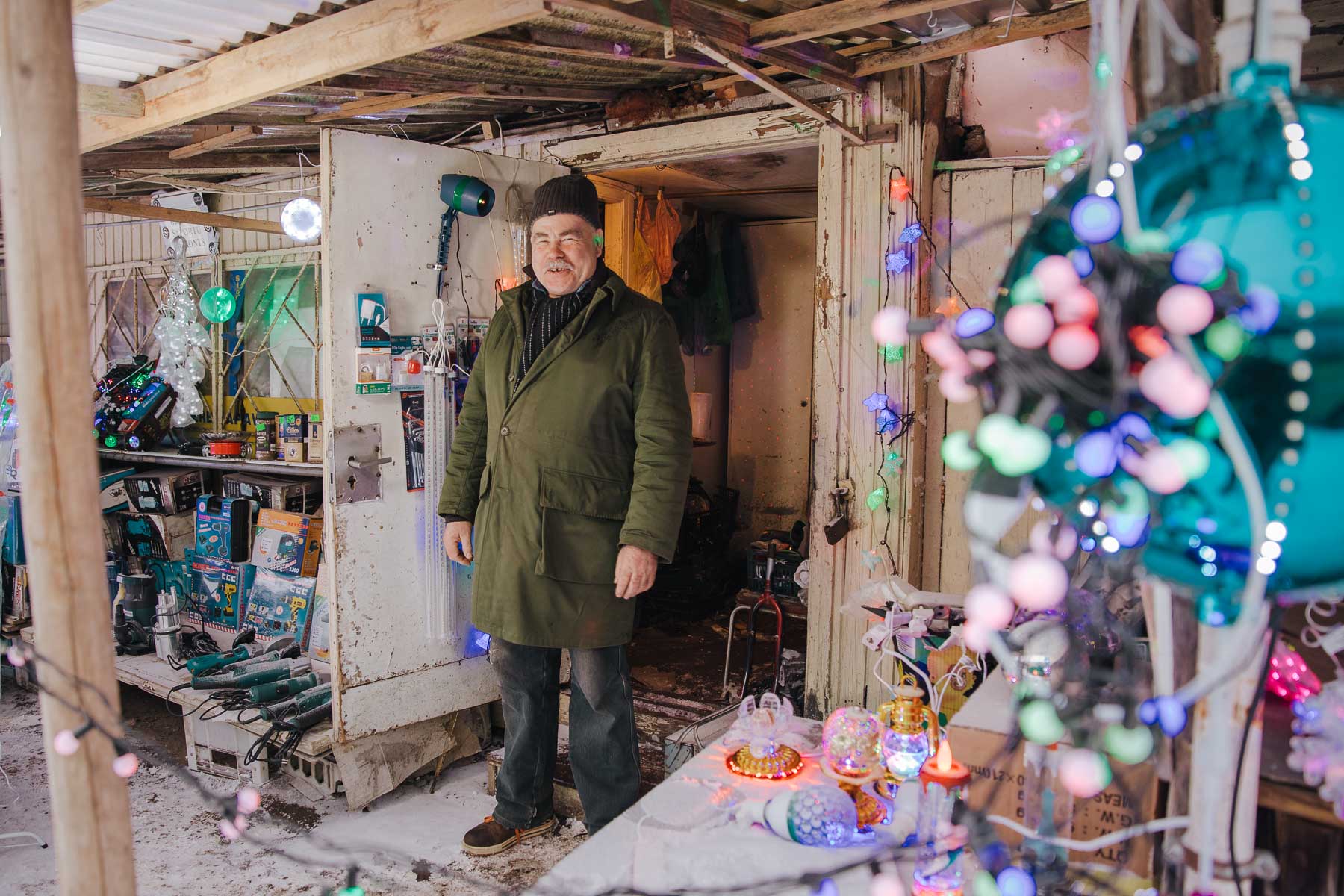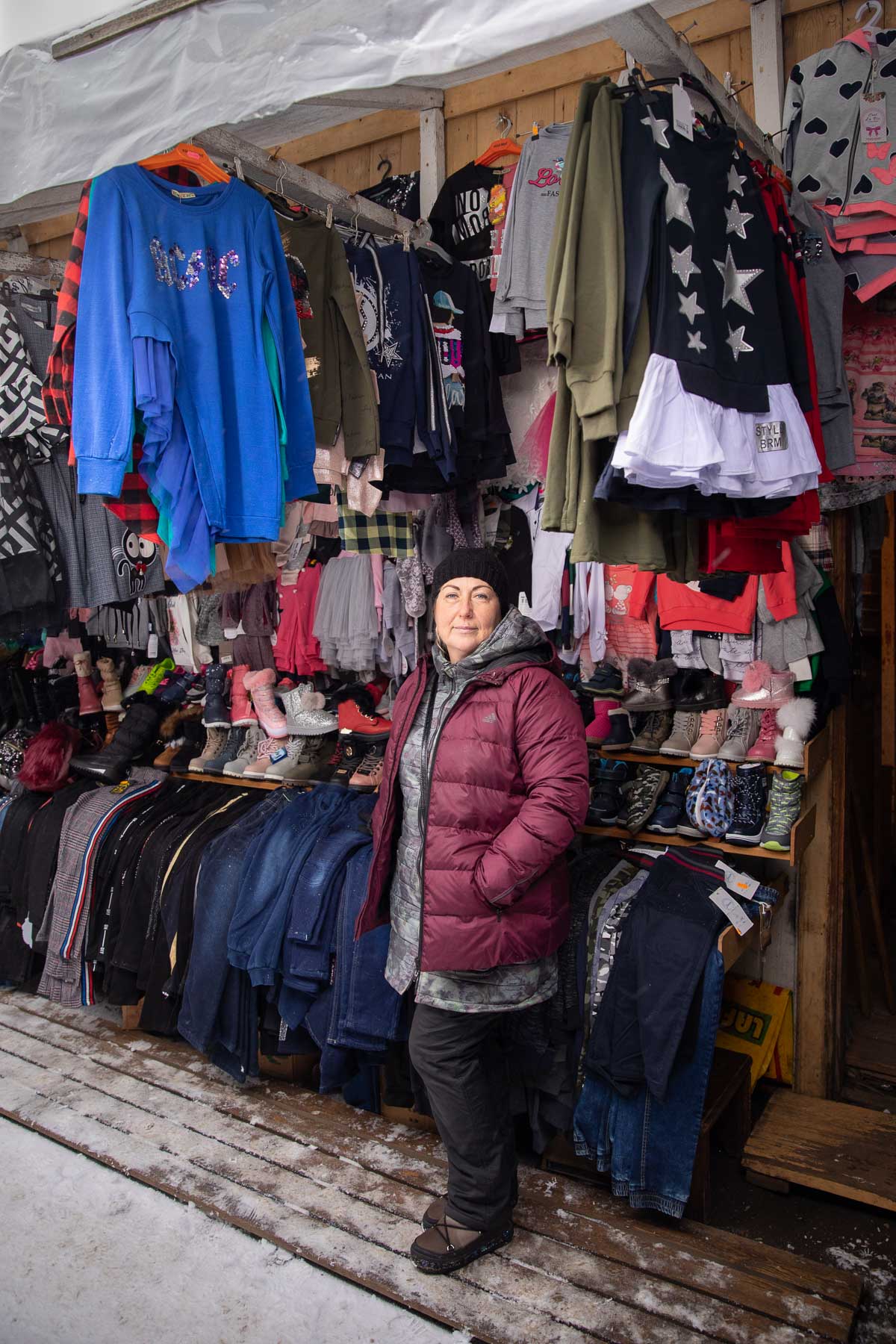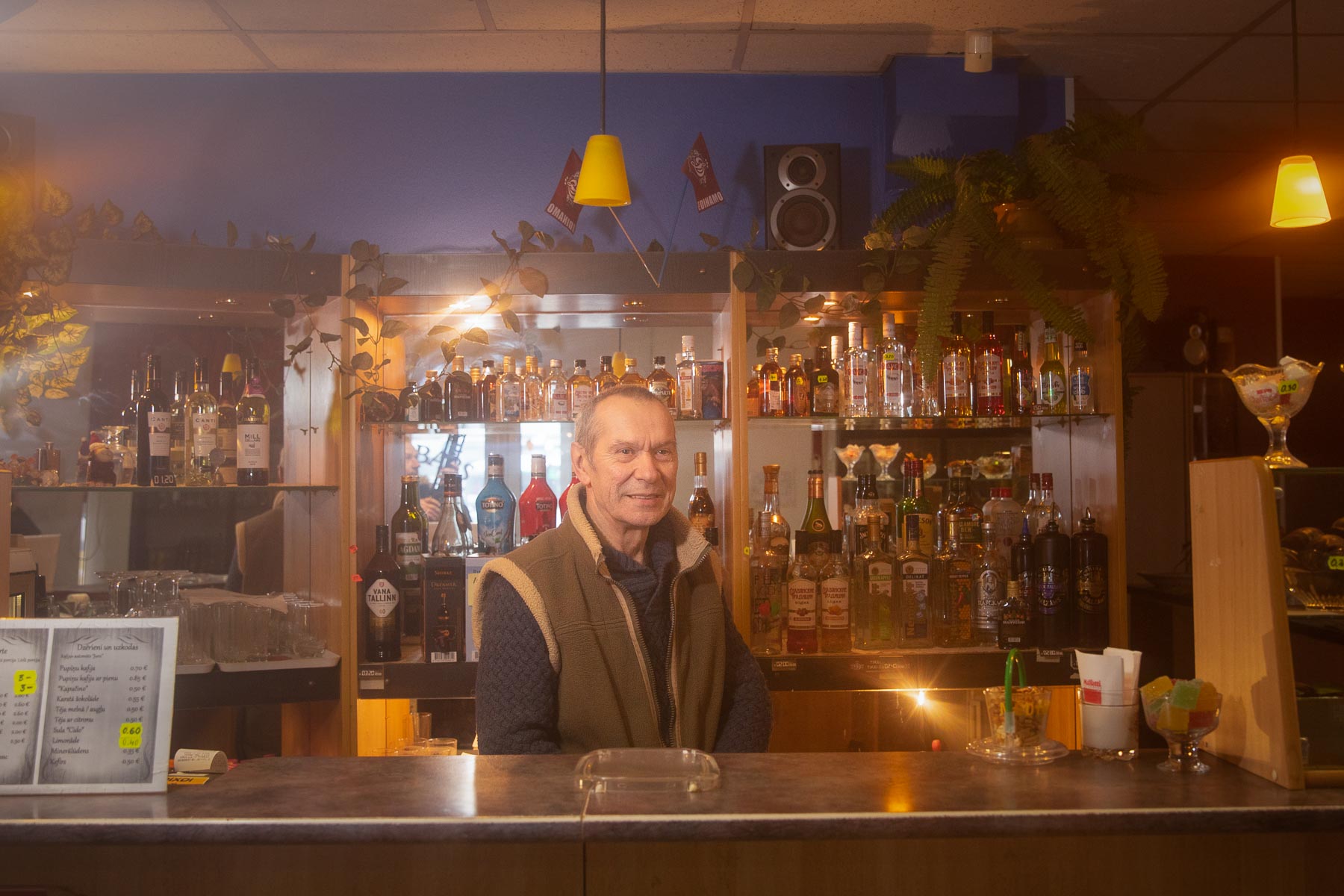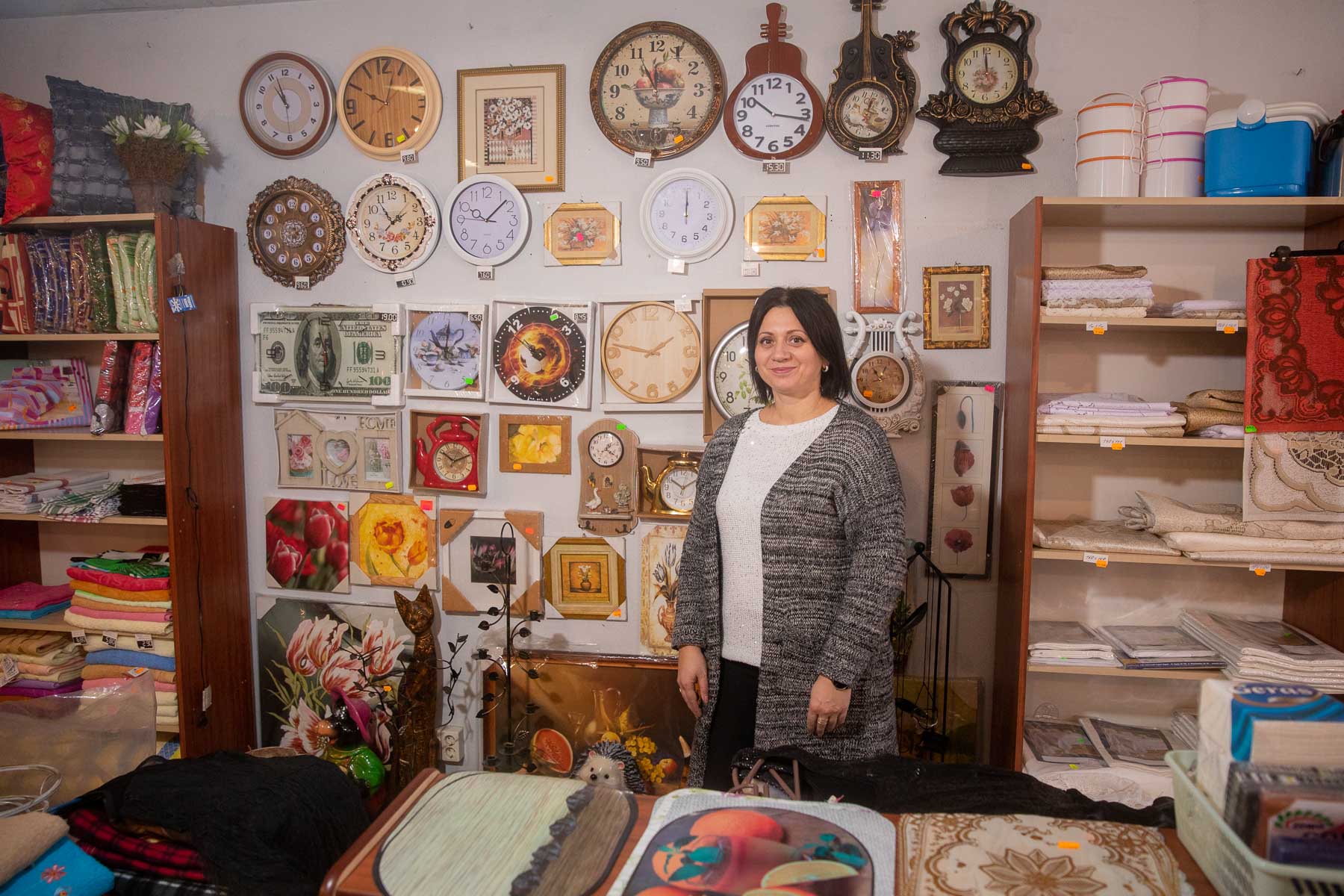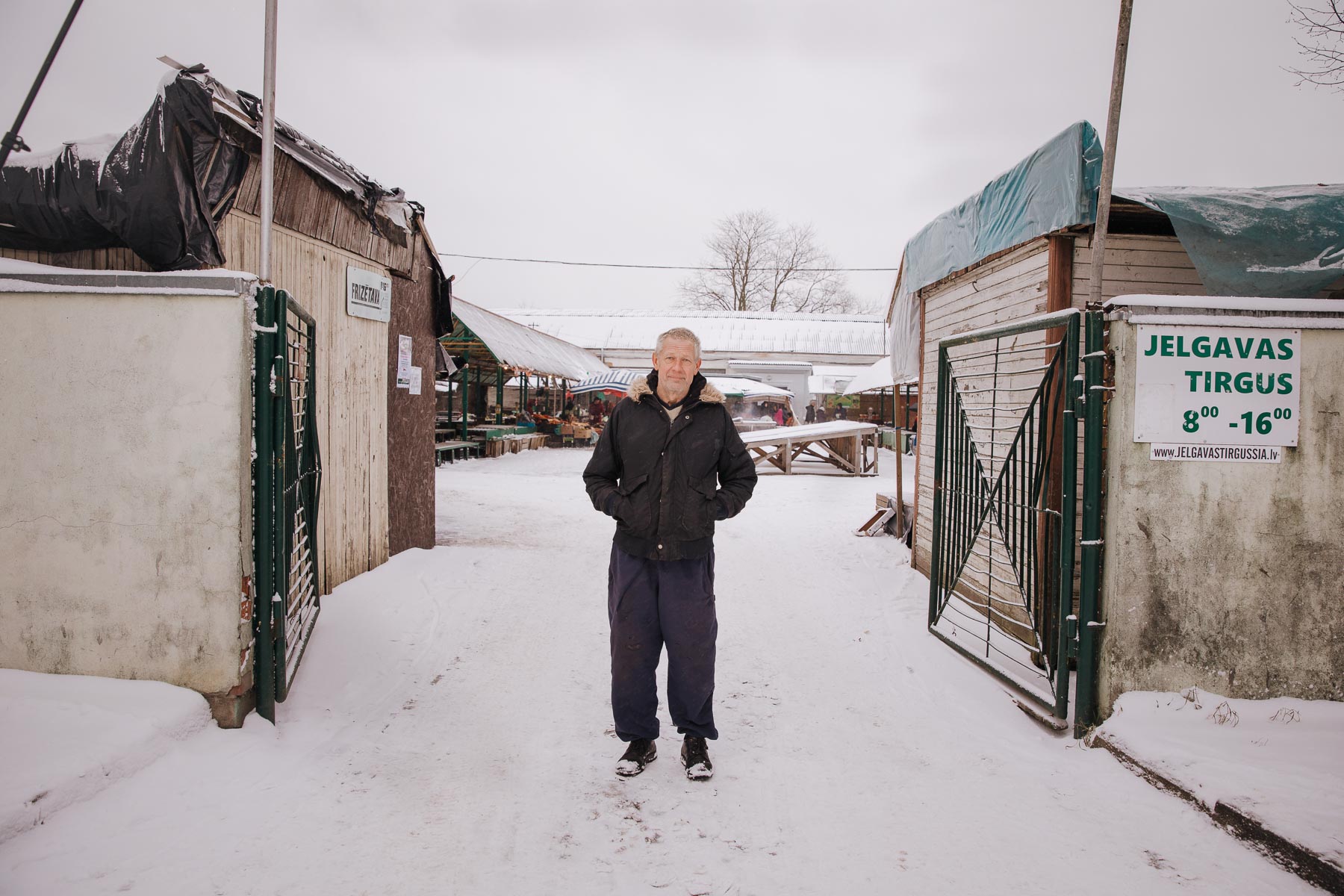I was born in the Soviet Union (modern Latvia), in the country which does not exist anymore. In 1992 Latvia gained its independence. My childhood and school years were spent in Jelgava - one of the biggest towns in Latvia. I experienced the changes and transformation of this town. I wanted to go back to my origins and explore my own identity through my own memories and the world that I recognise but cannot return to.
In 2010 I moved to the UK. During this time I developed a different outlook on Eastern Europe. Similarly to many Eastern Europeans who have lived in Western Europe for some time, I have created the ability to analyse and compare what both, the West and East can bring together. The values that I experience in Latvia are impossible to image in the UK. The imperfections that I have learnt to spot while living abroad would not be noticeable while living back home.
Self-Made Shelter
A market has always played an important role in everyday life. In the context of the Soviet regime, it has formed lives, identities and cultures of town’s inhabitants, including myself. My family would always go to the market every weekend to buy meat, fruit and vegetables. For me it used to be an intriguing place where people would not only purchase and sell the goods, communicate and socialise, but also communication and socialise.
2019 is the Year of the Pig
Jelgava’s market today is private property, and functions as a business, where sellers are able to rent out a space to sell their produce. It was serving the residents and guests of Jelgava since the 1960. However, the new development is in place, after which the market will be relocated and reformed. That means that the historical territory and its aesthetics will be gone. This development will strip away the past and present history. This has inspired me to capture the presence of this alternative and banal autobiography, the world that I remember and still able to recognise.
The Butcher
The new market development have been ongoing for a few years now. Therefore, the existing market will soon be closed and restructured. As a result, the traditional community of the market will fall apart and its historical links will disappear. Through the environmental portraits of the people who work at the market, I aim to preserve and demonstrate personal and social significance of the market and its culture. The portraits of the sellers/stand keepers would depict the Post-Soviet historic influence on social customs of the subjects and wider community. Through the environmental portraiture of the market workers I aim to represent how the cultural and historical context has shaped the identities of Jelgava’s residents.
© Natalia Smith Photography
All rights reserved. No parts of the content of this website may be reproduced or distributed in public, without the prior written permission of the publisher. All images are copyright to their respective owners and are protected under international copyright laws and are protected under international copyright laws. Without prior written permission it is not permitted to copy, download, or reproduce these images in any way whatsoever.





